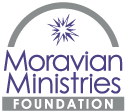By Lydian Bernhardt
Sister Lorena Gray knew a need when she saw it.
A nurse who lives half the year in North Carolina and half the year in her native Honduras, Gray experienced many challenging situations growing up. She could tell that, with the advent of COVID, hurricanes, drug cartel violence, and other factors that exacerbate disease, poverty and social injustice, already-difficult situations were becoming worse for vulnerable groups in that country.

One of those groups, the children of La Moskitia, a poor area on the coast, were being hit particularly hard.
“Lorena observed that the situation was getting harder for everyone, but lots of children there were truly starving,” says Julie Tomberlin, coordinator of the Unity Women’s Desk (UWD) ministry of the Moravian Church.
Gray works with children in the area’s many Moravian churches. She decided to start a children’s ministry to not only feed them spiritually, but also provide for their physical nutrition.
She walked the beaches, looking for children who might want to come to the Sunday worship service in three different Moravian congregations and, afterward, to a spiritual formation program. Then, after praying and singing, volunteer women would cook them a simple meal from food that Gray arranged to have donated.
Almost 50 children came in one village alone.
Gray, a nurse by training, has been a volunteer with the UWD, a ministry of the world-wide Moravian Church, since 2013. With the help of Julie Tomberlin, the ministry’s coordinator, the UWD applied for a $1,500 grant from the Moravian Ministries Foundation in America through their Hunger & Thirst Field of Interest Fund. Your gifts to that fund, which were matched on the Moravian Day of Giving 2021, made a world of difference for the children of La Moskitia.
With the extra help from the grant, Gray was able to pay a cook, giving that person an income, however temporary. The feeding program also added a program manager and a treasurer, and expanded plans to offer the meals every Sunday after church in three to five congregations.
“This donation’s been a miracle, especially when we’re cooking for so many children – every congregation has many, many children,” Gray says. “It takes an effort to start a ministry like this because “church people” in Honduras are not used to attending to children that way. Children are expected to act like little adults in church and they don’t come first. It took a month or two before the churches got the idea of what they needed to do.”
The program, which started on Oct. 17, 2021, was also designed to give the women direct financial and planning responsibility, allowing them to develop leadership, planning and implementation skills usually carried out by male pastors.

“My prayer is that the local churches can take over the program later on,” Gray says. “My prayer is they’ll continue to pay attention to children and do something positive for them. Too often, what children are learning is violence. As Christians, we need to focus on the new generation and help guide children toward better way. That would be wonderful.”
By calling on the UWD, Gray connected the Honduran churches to a larger effort to empower women of the worldwide unity to “answer their call,” answering not just a need but developing and empowering the church’s sisters.
“All children need to eat, all need to feel God’s love. But we want to support the women who feel called to service so that they can set their priorities and answer their call, and not have to wait for permission,” Tomberlin says. “We needed to make sure the money goes to the women to manage so they make the decisions, develop leadership skills and project management skills which they don’t usually get to use, even on church boards mostly controlled by men.”






